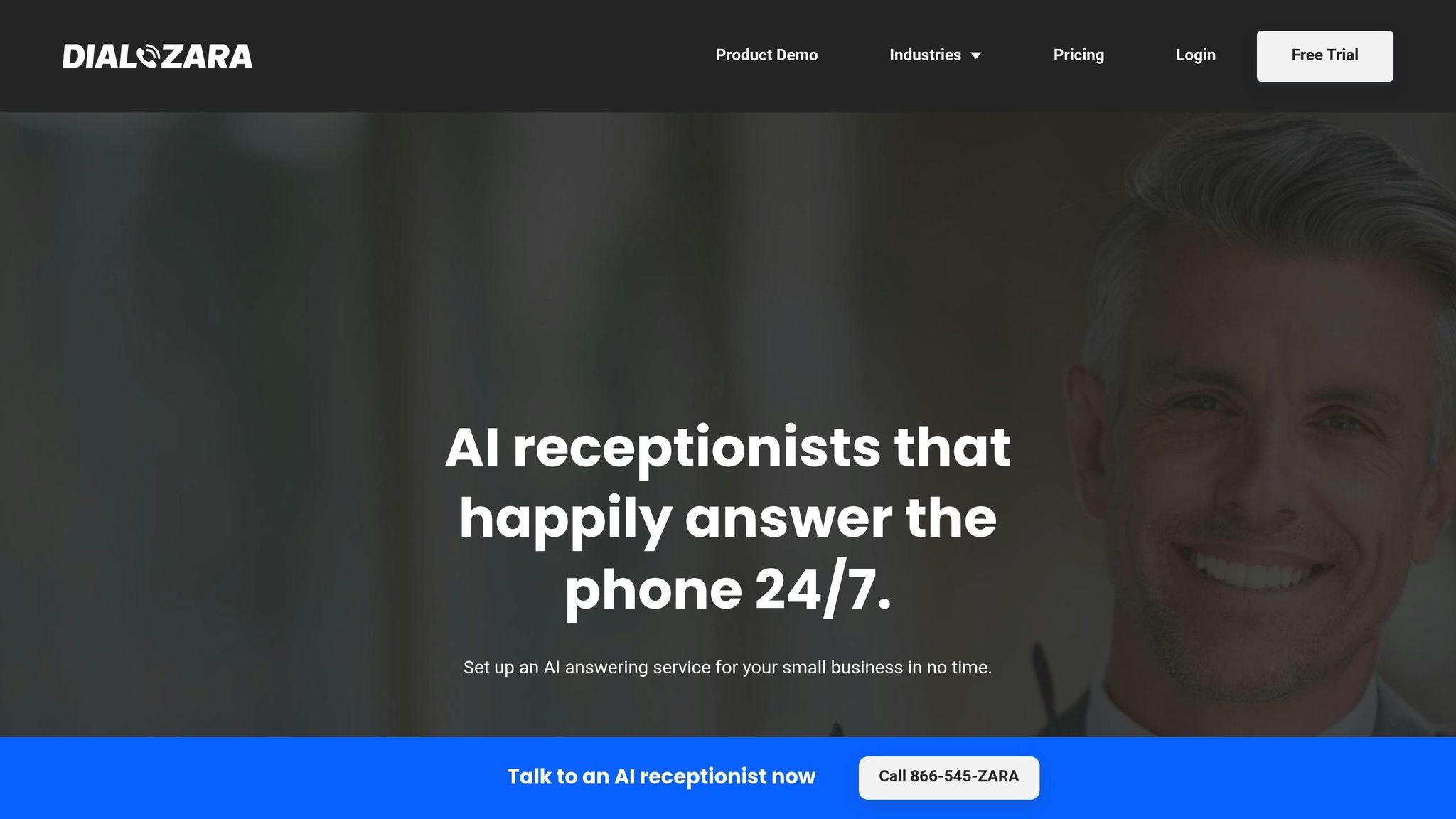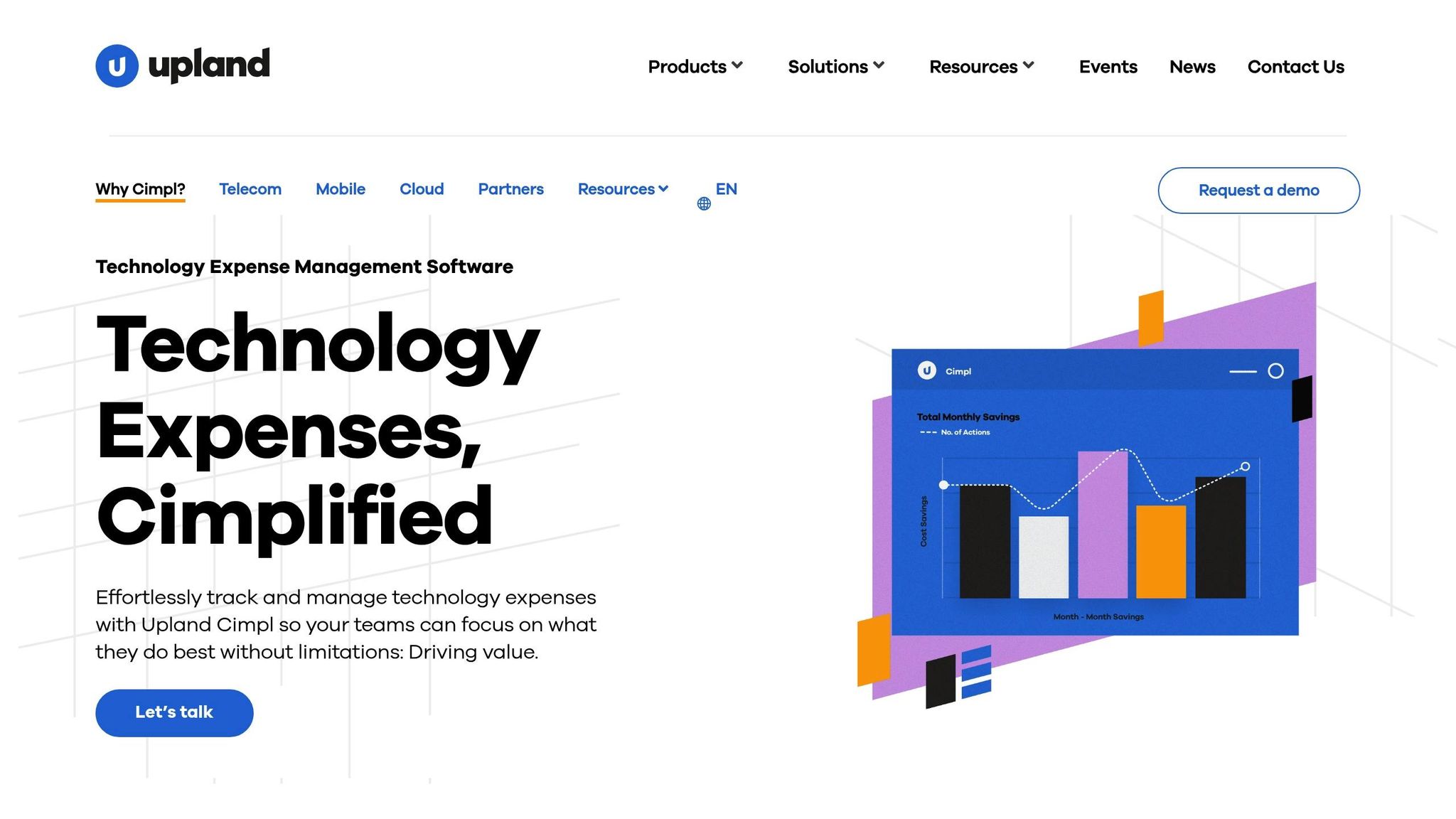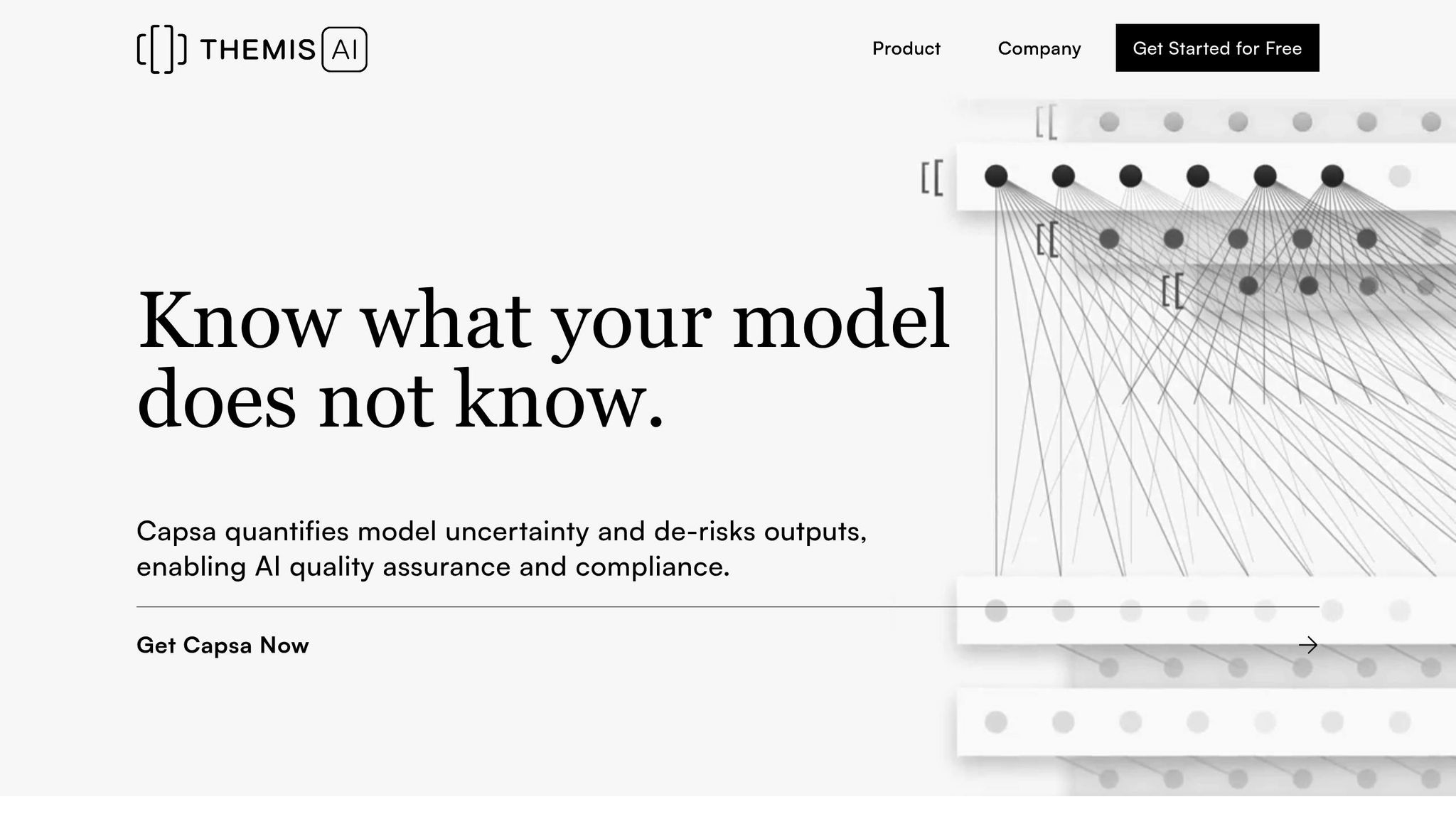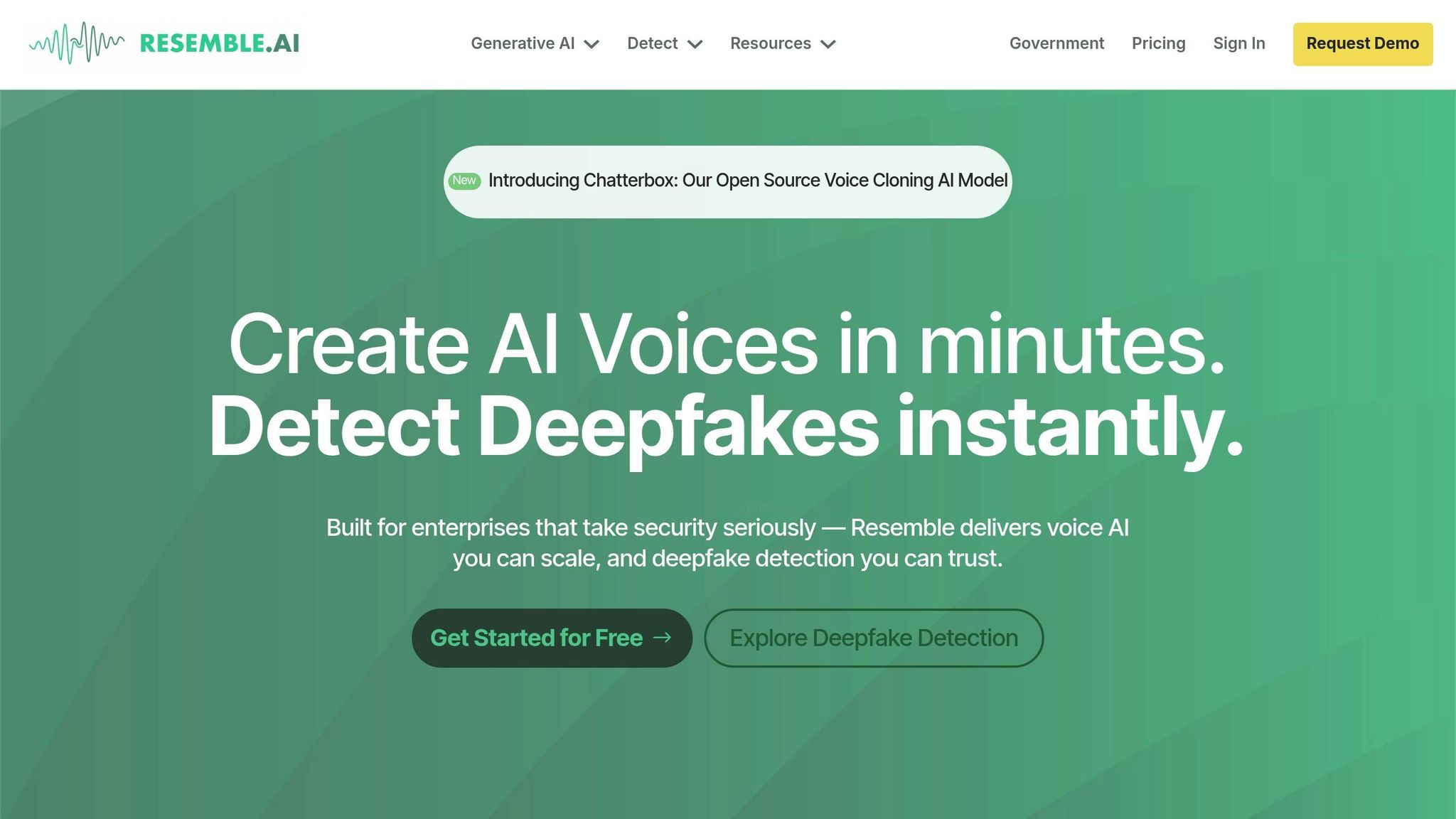
AI Compliance Tools for Small Telecom Businesses
Cut compliance costs by 90% with AI tools built for small telecom operations. Stop losing to competitors with bigger compliance budgets.

Written by
Adam Stewart
Key Points
- Cut compliance costs by 90% with automated call monitoring and tracking
- Set up voice security tools in 10 minutes to meet regulatory requirements
- Compare AI tools for call management vs. cost tracking based on your needs
- Beat the 69% compliance cost disadvantage small telecom firms face
Tired of following rules? Small U.S. telecom firms face big rule-related challenges, spending 69% more per worker than big firms do. But here’s good news: AI is helping small firms keep up, save time, cut costs, and follow rules.
Top AI Tools for Following Rules:
- Dialzara: Makes handling calls and staying within rules cheaper by up to 90%.
- Upland Cimpl: Keeps track of costs and fills out rule forms.
- Themis AI: Makes sure AI systems follow big rules like GDPR and CCPA.
- Resemble AI: Keeps voice data safe and follows rules like HIPAA with fraud checks.
Quick Look:
| Tool | Best For | Monthly Cost | Setup Time | Key Feature | Limitation |
|---|---|---|---|---|---|
| Dialzara | Call rules | Changes with use | A few minutes | Cost cuts, app links | Just for calls |
| Upland Cimpl | Cost tracking | $50–$200+ | 1–2 weeks | Telecom-focused features | Hard for small teams |
| Themis AI | AI law checks | $100–$500+ | 2–4 weeks | Risk and rule tools | Hard to learn |
| Resemble AI | Voice fraud checks | $19–$699 | ~1 week | Top voice safekeeping | Only for voice issues |
Which tool fits you? If you care about managing calls, Dialzara is fast and cheap. For more varied rule needs, Upland Cimpl or Themis AI might work better. If voice is your main thing, look at Resemble AI for fraud checks.
Start small, tackle your big time-eaters first, and pick a tool that fits your cash and needs.
1. Dialzara

Dialzara is a smart tech phone-answering service made to help small telecom firms handle calls better while keeping up with rules. It makes managing calls and data easy, solving big problems these firms face.
Rule Following
Dialzara makes call notes, records, and writes them down, making a sure record trail for rule reports. This means key points are noted and sent to the right people. In the telecom world, tight rules make this a must-have feature. Derek Stroup, a happy user, shared his story:
"I'm very pleased with your service. Your virtual receptionist has done a remarkable job, and I've even recommended Dialzara to other business owners and colleagues because of my positive experience."
Saving Money
For small companies, cutting costs matters. Dialzara gives a cheap way compared to normal staffing, helping small telecom firms cut down their spend on managing customer queries by up to 90%.
Easy To Join
Dialzara fits right into present telecom setups with just a simple call forward. It also links up with over 6,000 apps through Zapier, making it easy to work with CRM tools, chat services, and more. Companies get call updates in real-time by email or text, which keeps them in the know and quick to react. As one user said:
"With the capability to integrate seamlessly into your existing business systems, Dialzara offers a plug-and-play solution that brings a significant reduction in costs, freeing up your resources to focus on what truly matters - growing your business."
Automation at Its Best
Dialzara works all day and night and can be set up in under 10 minutes. It manages tasks like moving calls, setting up meetings, and sorting leads. This makes sure that every customer question gets a quick reply. This is very key since 60% of customers like to call local shops, but only 38% of those calls get picked up. Bobby James Fournier gave it high marks for being dependable:
"I've found Dialzara to be efficient and reliable."
For small phone firms facing outages, bill problems, or tech help needs, Dialzara makes sure every caller goes to the right help. This lifts both happy customers and smooth work.
2. Upland Cimpl

Upland Cimpl is a tool for small telecom firms. It makes it easy to deal with tough rules by setting up tracking, looking at data, and controlling costs.
Staying Right with Rules
Upland Cimpl keeps firms right with main rules like FCC lines and privacy rules from GDPR and CCPA. It also meets PCI DSS rules, which are key for telecom firms to handle customer payment info safe.
This tool sets up tasks like looking at bills, keeping track of stuff, and sorting costs. This helps make checks on rules easier. This is key as 61% of telecom leaders wait for rule changes and risks to hit how they work. With built-in rule checks, the tool cuts down on the usual work needed for staying up-to-date with new rules.
Low Cost
Upland Cimpl has a yearly fee model, with low plans starting at about $35.00 a year. This fits with the usual cost of about $30 per month. By finding ways to save money, it helps small telecom firms handle cost of keeping up with rules well.
Working Together
The tool fits smoothly with your current systems like billing and money software. It uses real-time data from many places for clear telecom checks. This fit boosts rule work flows without needing firms to change their current set-up. Features for doing stuff on its own make rule work easier, lightening the load on teams.
Doing Stuff on its Own
Upland Cimpl does many hard rule tasks on its own, such as looking at bills and making rule reports. With the VoIP market set to grow by 10% yearly from 2023 to 2032, these tools keep rule work run smooth even as work demands grow.
Also, the platform makes sorting costs among different parts of the business easier, making it simpler to keep records for rule reports. This doing stuff on its own cuts admin work and keeps things going well.
3. Themis AI

Themis AI makes following laws better with its Capsa tool. This group was set up in 2021 at MIT CSAIL. They work to make AI models more trusty and make sure they follow tight rules.
Following Laws
Themis AI takes on a big job in telecom: making sure AI works right in key areas. Its Capsa tool was made to aid telecom groups stick to the EU AI Act. This law asks for full risk and trust reports for big AI tasks. By marking doubt in AI results and catching bad results early, Capsa stops big problems before they grow. This is extra key in parts of telecom like setting up networks, making things automatic, and helping customers, where small slips can lead to big trouble.
"We want to enable AI in the highest-stakes applications of every industry", - Alexander Amini, Themis AI co-founder
The platform also has a single system for Governance, Risk, and Compliance (GRC). It makes meeting rules, handling risks, and work steps more smooth. This way makes tasks like checking partners and rules simpler. Aside from handling risks, Themis AI focuses on saving money, giving real help for businesses.
Cost Less
While we don't know the exact prices, Themis AI helps cut costs, mainly for small telecom groups. By making small AI models more right, Capsa can lower the need for pricey server setups. It also stops businesses from high costs for not meeting rules and big fines. With AI spending in telecom only 0.16% of money made in 2023 - much less than the world average of 0.49% - tools like Capsa are key for top AI use while keeping risks low. The company's $2.82 million in new money shows strong trust from those who put money in it.
Works Well Together
Capsa shines by fitting right into what is already there. It can work with any machine learning style and fits in quick using covers for PyTorch and TensorFlow.
"Capsa makes any model safe and reliable in seconds." - Themis AI
The platform works well with many operating systems, like Windows, macOS, iOS, and Android. Its cloud set-up keeps data updated in real time, helping telecom firms keep an eye on AI rules all the time without needing manual checks.
Automation Features
One key part of Themis AI is that it can make rule watching automatic. Capsa spots when AI models give iffy results and marks bad outputs on its own, making sure problems are fixed before they mess up the work. This feature helps small telecom groups a lot, as it lets their small tech teams focus more on important areas like making the network better, finding fraud, and improving customer help.
sbb-itb-ef0082b
4. Resemble AI

Resemble AI mixes high voice tech with tests to find fake media, to help keep phone firms safe. CEO Zohaib Ahmed says the tool puts honest AI first and helps small phone firms follow the rules. One key part it has checks for changed voices, which is a big worry for phone firm safety.
Rule Following
Resemble AI sticks to laws like HIPAA, GDPR, and CCPA with safe voice ID setups. Its Resemble Detect checks voice data for fake parts, tests them with real human voices, and mostly gets it right over 98%. The firm also follows the Voluntary Code on Honesty in AI Use, showing clear and fair use in its voice tools.
Easy Prices
The tool has prices easy for small phone firms. You can pay as you use at $0.018 per min (with a $1 least and forever credits) and monthly plans: Creator at $19 (15,000 secs), Professional at $99 (45,000 secs), and Business at $699 (360,000 secs). For example, a firm using 17 hours a month would pay about $18, way less than others that cost $40 to $150. Also, Resemble AI's voice clone tech cuts the need for voice actors and sessions, giving the same multilingual voices with less hiring.
Easy to Join
Resemble AI fits well with phone systems. Made to work first with APIs, it pairs nicely with setups like Aircall, Twilio, and more. The tool supports setups on the firm's grounds or private clouds, letting firms control their voice data. It can also go into mobile apps and web tools, giving ways to use it in different needs. With its API, firms can get content, make voice clips, and make voices fast, using ready-made models to make work smooth.
Top Auto Features
Resemble AI handles complex voice jobs on its own, removing the need for hand work. Its Resemble Detect checks voice data all the time, helping phone firms find lies fast. CEO Zohaib Ahmed points out how the system changes well:
"Resemble's deepfake detection models, trained on terabytes of data, adapt within hours to new AI models, ensuring rapid fraud detection."
The platform lets you make voice calls and change them for other places. It lets firms make voice mails in many languages, handle customer calls well, and keep track of rules with sound marks and tags. With guesses that 97% of groups will use voice tech for customer calls and AI help by 2025, these tools are key to stay in the game.
Tool Check: Ups and Downs
Small telecom companies face more rules now, and picking the right tools is very key. Here, we show the good and bad points of four tools, helping you pick the best one.
Dialzara aims for fast work and cost cuts. It starts quickly and can work with more than 5,000 business apps, making it a good pick for telecom tasks. But since it deals mainly with call work, it might not meet all rules needs when not about calls.
Upland Cimpl is good at keeping track of telecom costs and contracts with special tools for the field. But, it can be hard to use for small teams, and costs might go up as your company gets bigger.
Themis AI is good for dealing with many rules, like GDPR and CCPA. It also has ways to update rules and check risks by itself. Yet, its deep features may take time to learn well.
Resemble AI is great at keeping voice safe and finding frauds, which is perfect for companies focused on voice tech. But its main work on voice means it might not cover all general rules needs.
Here's a short view of each tool's top traits, costs, and limits:
| Tool | Good for | Cost Each Month | Time to Set Up | Main Plus | Big Minus |
|---|---|---|---|---|---|
| Dialzara | Call rules and quick setup | Changes with use | A few minutes | Saves a lot of cash, many ways to mix it | Only works for calls |
| Upland Cimpl | Watching over phone costs | $50–$200+ per person | 1–2 weeks | Made for certain work areas | Too hard for small groups |
| Themis AI | Following many rules | $100–$500+ each month | 2–4 weeks | Covers lots of rules well | Hard to learn how to use |
| Resemble AI | Stopping voice scams | $19–$699 each month | Around a week | Very good at keeping voice chats safe | Only cares about voice issues |
Price Thoughts
Dialzara is good for saving money as it can cut the need for more people, not just monthly costs. In contrast, Upland Cimpl and Themis AI cost more because they handle more rules.
How They Join
Each tool joins up in its own way. Upland Cimpl fits well with telecom bill systems, Themis AI links to law databases, and Resemble AI's design lets it mix with different telecom setups.
Making Things Easy
Automation is a big reason to pick these tools. Each one cuts down on work in its own style, whether it’s sorting calls, tracking spends, or keeping up with new rules.
Picking the best tool really depends on what your business needs in terms of following rules. If your work talks a lot, Dialzara or Resemble AI might work well. For more complex law needs, Themis AI or Upland Cimpl might be right.
Last Words
Picking the right AI tool needs you to match it with what your job asks and how much money you can spend. Every tool is good at something, so knowing their differences helps you pick with cost and work smarts in mind - this is key for small telecom firms.
For New, Money-Smart Firms
If you're just starting and watching your costs, Dialzara is a good pick. It's great at call rules and saves you money. Also, it works with over 5,000 business apps, helping growing firms change and expand.
How to Start
Start with tasks that eat up most of your time. Pick a tool that can grow and targets these tasks. Studies show that AI tools can cut task time by up to 40% and make things work better. This careful way also makes sure you spend with your needs in mind.
Planning Your Money
When making your budget, think past just the monthly fees. Simple AI tools usually cost $99 to $1,500 monthly, while tailor-made ones can range from $20,000 to over $500,000. Remember, not following rules can cost a lot - firms often lose about $4,005,116 because of these issues. Putting money in these tools can stop these losses and prove to be money well spent.
Starting Out
With your plan and budget set, try your tool in a chosen area of rules. Train your team well - almost 96% of firms start without good training data. Keep checking how the tool works and adjust as needed based on real outcomes.
What to remember? Aim to find a tool that meets your specific rule needs and don't get lost in too many features. A focused, growable plan works better than trying to fix every issue with a one-fix-for-all tool.
FAQs
Summarize with AI
Related Posts
5 Benefits of AI in Telecom Field Service
AI is transforming telecom field service by enhancing workforce management, predictive maintenance, and customer experience while ensuring compliance and scalability.
AI for Telecom Service Quality Prediction
Explore how AI is revolutionizing telecom service quality prediction and enhancing customer interactions for small and medium-sized businesses.
AI in Telecom: Upselling vs. Cross-Selling
Explore how AI enhances upselling and cross-selling in telecom, boosting revenue and customer satisfaction while reducing churn.
Top 7 AI Tools for Telecom Service Activation
Explore the top AI tools revolutionizing telecom service activation, enhancing efficiency and reducing errors in operations.
